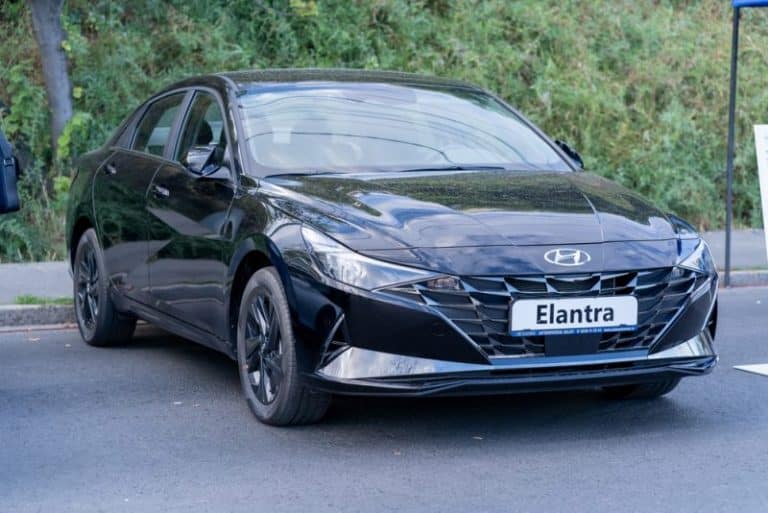Does Hyundai Tucson Need Premium Gas? (Must Read)
We all know that a car is as good as gone without gas. As your vehicle’s energy source and propelling force, gas deserves the utmost attention.
Therefore, you should know the appropriate gas for your Hyundai Tucson.
The suitable gas for your Hyundai Tucson depends on the car’s year and model. For example, regular unleaded gas with an 87 AKI octane rating is appropriate for the 2004-2020 Tucson models. However, the more recent 2021-2022 uses premium gas with 91 AKI for effective functionality.
Does Hyundai Tucson Require Premium Gas?

To be reading this, you should know that there are different types of fueling gases and some cars are pretty specific with their gas requirements.
The detriments of using the wrong gas type for cars are bizarre. As such, every car owner must strive to find out what gasoline fits their car.
The name Hyundai always rings a bell because they keep on producing remarkable products with solid reliability. The Hyundai Tucson SUV is a testament to this fact.
However, owning a car is not enough if it doesn’t serve its purpose of transportation.
The Hyundai Tucson, like every other automobile, requires fuel to move. Consequently, the question lies in the kind of fuel.
Hence the question, what gas does Hyundai Tucson need?
The 2021- present models of Hyundai Tucson, being high-performance, requires premium gas to run.
Premium gas with an octane rating of 90 or higher has higher compression ratios that fit the recent Hyundai Tucson engine.
On the other hand, older car versions require the opposite, which is the regular leaden gasoline. Though regular gas is common and budget-friendly, it doesn’t work well with all cars.
Therefore, if you own a newer model of Tucson and desire maximum efficiency, premium gas is the way to go.
Consequently, you have seen that Hyundai Tucson uses both premium and regular gasoline, depending on the model.
If at any point in time you happen to be unsure of the specific kind of gas for your vehicle, please revert to your car’s manual.
Your manual should be your number one guide for your vehicle as it contains all the information you may require.
Difference Between Premium and Regular Gas
As the engine fuel for automobiles, gasoline is a product of crude oil and other petroleum products. It is used as the engine fuel for automobiles.
The finished gasoline that powers vehicles are a combination of refined crude oil and other liquids like ethanol.
The mixture, blend, and percentage of other petroleum liquids create different types of gases. The two major gas grades are premium and regular gas.
Premium gas contains petroleum blends with an octane number higher than 90. Therefore, its octane level is higher in comparison to any other gas.
Though the octane level for premium gas varies in cities, it ranges from 91 to 94. The high level of octane in premium gas is necessary for some vehicles with high-performance engines.
On the other hand, engine regular gasoline is pretty common as it’s the standard for most cars. It is a go-to option for drivers as many are ignorant of the specific gas types.
Although regular gas poses dangers to unrecommended vehicles, drivers turn a blind eye to it until they notice adverse effects.
The above statement doesn’t condemn regular gas. It only stresses the importance of sticking to the recommended gas type for your vehicle.
From the above explanation, it is visible that the major difference between premium and regular gas lies in their octane levels.
However, this isn’t the only difference between the two. Let’s highlight other differences below.
- In comparison, regular gas is recommended for most vehicles. Therefore, the number of cars that need premium gas is not as much when compared.
- There is a significant price difference between the two. Since premium gas fosters engine performance, it is costlier than regular gas.
- Premium gasoline is suitable for most sports and luxury cars. In contrast, regular gas is suitable for economy cars.
Although it has been stated that premium gas boosts engine efficiency, you shouldn’t use it for your car if the manufacturer doesn’t recommend it.
If you use it of your own accord, it will do you no good. Similarly, if your car requires a high-level octane gas, using a lower one to cut costs will cause damage.
So, you should fill older models of Hyundai Tucson with regular gas and newer models with premium gas. Otherwise, stick to your manual’s instructions.
Does Hyundai Tucson Hybrid Require Premium Gas?
If you’re wondering, yes, Hyundai Tucson has a hybrid model. Like all hybrids, Tucson functions with both electricity and fuel.
The Hyundai Tucson turbo-charged hybrid with a four-cylinder engine has a gallant fuel economy. The fourth-generation all-wheel-drive, which has 80 MPGe, is powered by premium gas.
The reason is that engines that have turbochargers normally need fuel with higher octane to maintain optimal performance.
The reason is that these engines have high compression ratios, and the octane level suitable for them is inherent in previous gas.
Fuels with high octane can withstand the compression of these engines longer before combusting or detonating.
Summarily, premium gas is recommended because it enhances the speed, mileage, and efficiency of your Hyundai Tucson hybrid.
Pros and Cons of Premium Gas
There are certain benefits and drawbacks of using gas with higher octane levels.
However, your mind shouldn’t get racing at the mention of cons because it’s nothing that you can’t handle.
Pros
Let’s browse through the list of advantages that users of premium gas experience.
- Better fuel economy efficiency and gas mileage
- Improved performance through power optimization
- Enhances speed
- Premium gas reduces emissions
- Reduction of engine knock
- It improves engine health
Cons
Below are the disadvantages that come with using high octane gas.
- Premium gas is quite costly. It costs about 50 extra cents in comparison to regular gasoline.
- If it isn’t recommended for your vehicle and you proceed to use it, you won’t enjoy any of its benefits. That way, you would just incur unnecessary extra costs.
Tips
Here are certain notable tips that will help you understand your car and its gas type.
- Engines with high compression design or forced induction usually require premium gas.
- Always resort to your vehicle’s manual for confirmation of its gas type
- If your manual uses the language “required” in the description of gasoline type, stick strictly to the requirement.
When you stick to the requirements, you’ll certainly enjoy your vehicle in comfort for a longer time.
Will Premium Gas Clean my Engine?

The straightforward answer to this question is yes. Premium gas will clean your engine. You may wonder how this is possible. Well, I’ll tell you how.
Premium gas contains additives and detergents as part of its elements.
These additives and detergents clean fuel injectors and eliminate deposits of carbon that have built up in the engine over time.
Apart from cleaning up your engine, these additives also optimize performance. Since there are different blends of additives, ensure to use one that is compatible with your Hyundai Tucson.
Though premium gas has many cleaning additives, it doesn’t replace engine cleaners.
However, premium gas helps cut down maintenance costs in the long run as it cleans the valves and reduces plaque deposits.
Motorists with vehicles that use premium gas should still opt for engine cleaners whenever maintenance is done.
Conclusion
The gas type suitable for the Hyundai Tucson isn’t contradictory as some users think. The truth is that it all boils down to the version of Hyundai Tucson you have.
While leader gas with an octane level of 87 is recommended for older models, premium gas does the trick for newer models.






